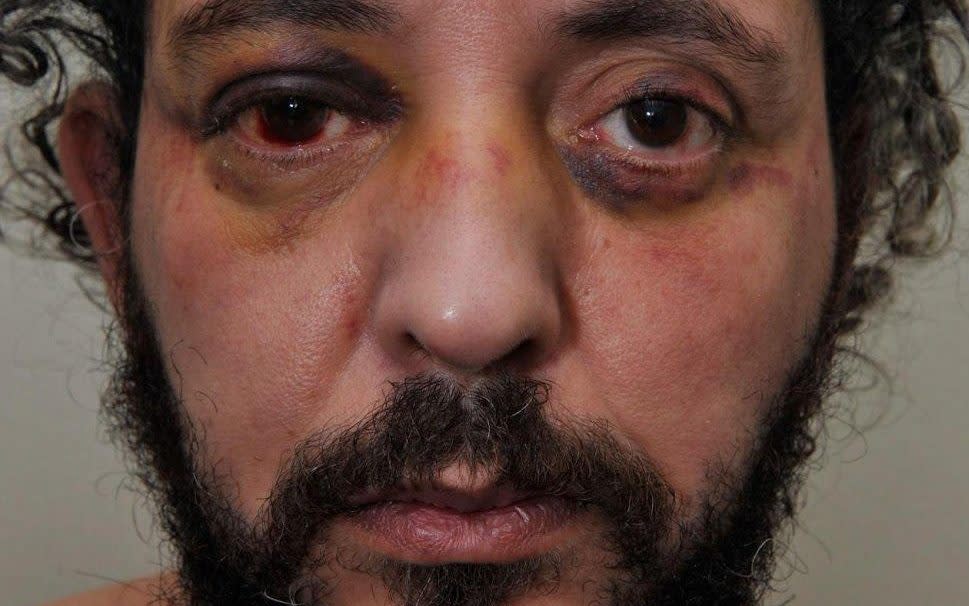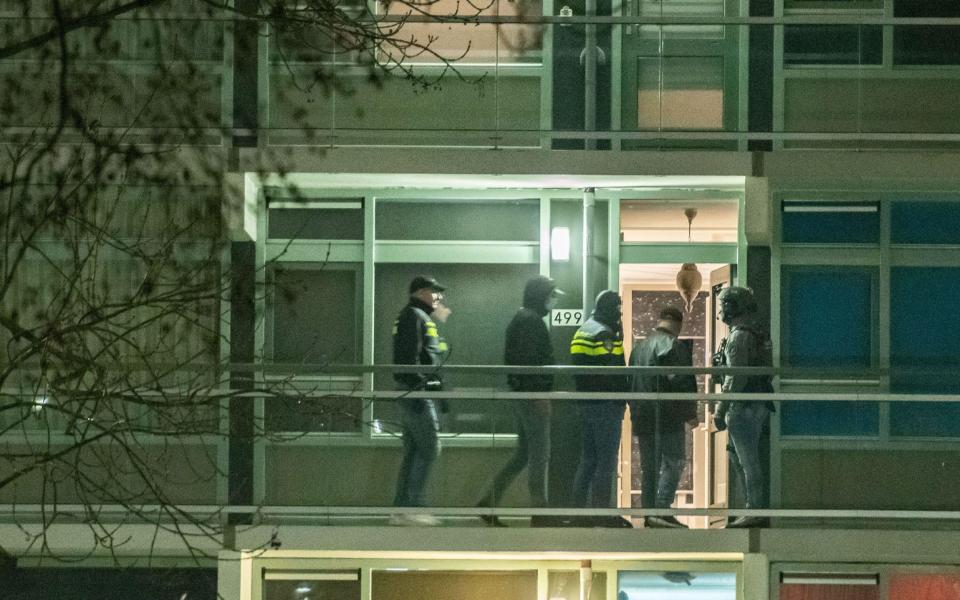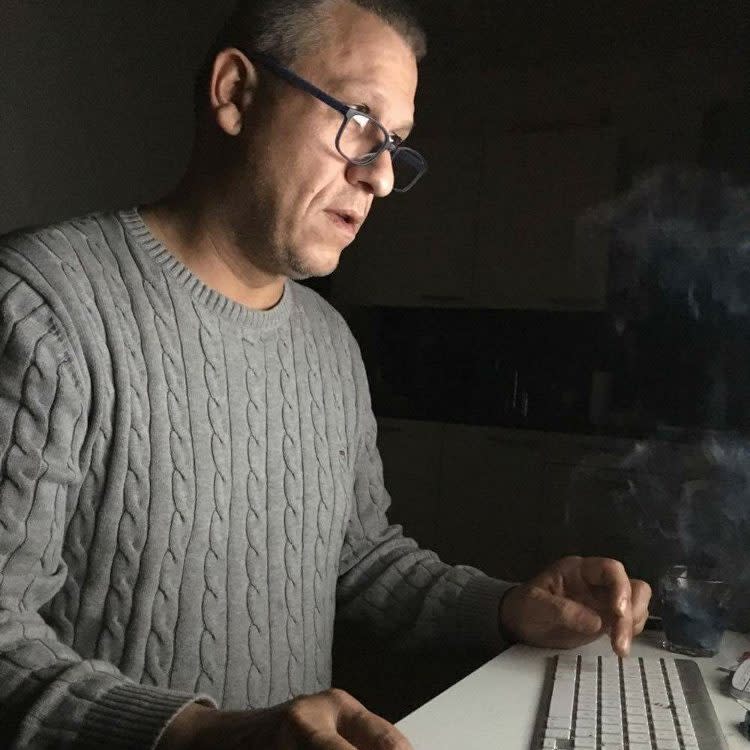Dutch drug kingpin Ridouan Taghi sentenced to life over ‘Marengo Trial’ murders

Ridouan Taghi, reportedly Europe’s most powerful drug lord, has been sentenced to life in prison for five murders by a heavily guarded Dutch court nicknamed “The Bunker”.
The Dutch-Moroccan crime boss did not attend the culmination of the Marengo Trial, the biggest criminal case in the Netherlands’ history, or follow it from his high security prison.
Taghi, 46, is said to be worth $1 billion (£789 million), with a share in the control of a third of all cocaine smuggled into European ports.
Taghi had denied six gangland slayings, as well as another four attempted murders and the planning of more attacks between 2015 and 2017, during a brutal gang war.
The cocaine trafficker is also thought to have ordered three murders connected to the trial, including the killing of a lawyer, a television journalist and the brother of a crown witness.
Amid fears that Taghi was running his empire from prison and the Netherlands was turning into a “narco-state”, protection was raised around Mark Rutte, the Prime Minister, to prevent a potential kidnapping plot.
Judges and prosecutors in the blockbuster trial had asked not to be identified. Police armed with automatic rifles and wearing face masks to protect their idenitities guarded the court, while drones and a helicopter circled overhead.

“He decided who would be killed, and he respected no one,” the chairman of the court said, describing the “terror” Taghi had caused in the Netherlands.
“The amount of suffering he caused is hard to imagine,” the chairman added in a packed building on the outskirts of Amsterdam, which was under army guard.
“Taghi, if released, will have murders committed again. That is why we believe that society should be given maximum protection against him,” added the judge, whose face was not shown on a television feed.
‘Well-oiled killing machine’
Prosecutors had earlier described Taghi and 16 co-defendants, none of whom made any statements during the almost six years of the trial, as a “well-oiled killing machine”.
They had evidence of a heavily armed standing army of hitmen ready to carry out Taghi’s orders before a trial that forced a complacent Netherlands to confront its lenient drugs policy.
The gang has been dubbed the “Mocro-Mafia”, because many of its members are of Moroccan origin. The crime boss moved to Vianen, close to Utrecht, from Morocco when he was two.

Taghi, who was acquitted of one of the murders due to a lack of evidence, was the sole leader of the criminal organisation, the court said.
“Taghi apparently regarded a number of people as traitors who had to die at all costs. The murders were well prepared by ‘spotters’” the chairman of the court said, “The organisation had people at its disposal everywhere, including corrupt officials.”
The chairman added that none of the relatives of Taghi’s victims had dared to talk about their suffering for fear of reprisals.
Crown witness Nabil Bakkali ,36, was sentenced to 10 years on Tuesday after the court said he was a “co-perpetrator” in the “liquidation” of gangster Ranko Scekic in June 2016.
He secured a more lenient sentence than the 20 years he could expect in return for evidence against Taghi, which, the court said, had solved five murders.
He turned crown witness after another gangland hit killed the wrong man, Hakim Changachi, 31, a childhood friend of Bakkali.
“Taghi was responsible for the mistake,” the judge said.
Bakkali’s brother Reduan, 41, and lawyer Derk Wiersum, 44 were both shot dead in separate hits in Amsterdam in 2018 and 2019 while Taghi was the Netherlands’ most wanted man.

Campaign of terror
Taghi is believed to have continued his campaign of terror from behind bars after his 2019 extradition from the United Arab Emirates.
Peter R de Vries, the Netherlands’ best-known television journalist, was gunned down in central Amsterdam in July 2021 after agreeing to support Bakkali during the trial.
He had previously accused Taghi, who was later held in solitary confinement and only allowed to communicate with his lawyer, of putting him on “a death list”.
The murders of Mr Bakkali, Mr Wiersum, and Mr de Vries, 64, are being prosecuted separately.

Two men were jailed for 30 years for the lawyer’s murder last year. A verdict in the de Vries case is due in June.
“We would like to take a moment to remember the three people murdered during the hearings, All this gives the trial a pitch-black edge. But today it is not about those three murders,” the chairman of court said.
The judge added that Bakkali “has to live with the reality of always having to look over his shoulder, just like a large part of his family”.
Eight of the 17 co-defendants were at the courthouse, some putting their hoods up, as sentences ranging from 27 years to one year and nine months were read out.
As well as Taghi, Saïd Razzouki, 51, his right-hand man and a third defendant, Mario R, were given whole life sentences.
Razzouki’s lawyers said they would appeal the sentence, dashing hopes that the “Marengo Circus” was finally over.
Taghi’s sentence can be reviewed after 25 years, but it did not mean he was automatically eligible for parole, public prosecutors told AFP. In reality, he is unlikely to ever be released from his ultra-secure cage and could face more charges in the future.
The prosecution’s case consisted of huge tracts of evidence detailing conversations from encrypted telephones.
The decrypted telephone messages showed Taghi, who based himself between Utrecht in the Netherlands, Dubai and Morocco, ordering his victims to be put to “sleep”.
They included crime blogger Martin Kok, who named Taghi in his writing, and Ronald Bakker, who owned a shop selling surveillance equipment.
Taghi had ordered his death after suspecting the shop owner had helped police with an investigation, the court said.

The mobster has long expected the whole life tariff.
According to the Het Parool newspaper, he has said money spent on a “sham trial could rather have gone to employing more teachers and police and health care.”
His lawyer Inez Weski was arrested in April last year, with prosecutors accusing her of passing messages between her client and the outside world.
She is yet to be charged, although she remains a suspect, and has refused to comment on the case for client confidentiality reasons.
New lawyers were appointed for Taghi, but they too have since resigned and he has since indicated he would handle his own legal representation.
Criminal mastermind
Taghi is suspected of masterminding cocaine shipments from countries such as Colombia, Panama and Ecuador.
He was observed by US officials at Dubai’s seven star Burj Al Arab hotel in 2017 in a meeting with a senior member of the Naples-based Camorra mafia , an Irish mob boss and a Bosnian drug lord.
The DEA estimated the four men controlled a third of cocaine trade in Europe.
Last year Belgian customs seized a record 116 tonnes of cocaine in the port of Antwerp, the main gateway for South American cartels into Europe.
In 2023, Dutch customs officials seized almost 60,000kg of cocaine, which was a sharp increase from 2022’s 51,000kg.
However, it is widely accepted such seizures are a fraction of the amounts successfully getting into Europe.

 Yahoo News
Yahoo News 
